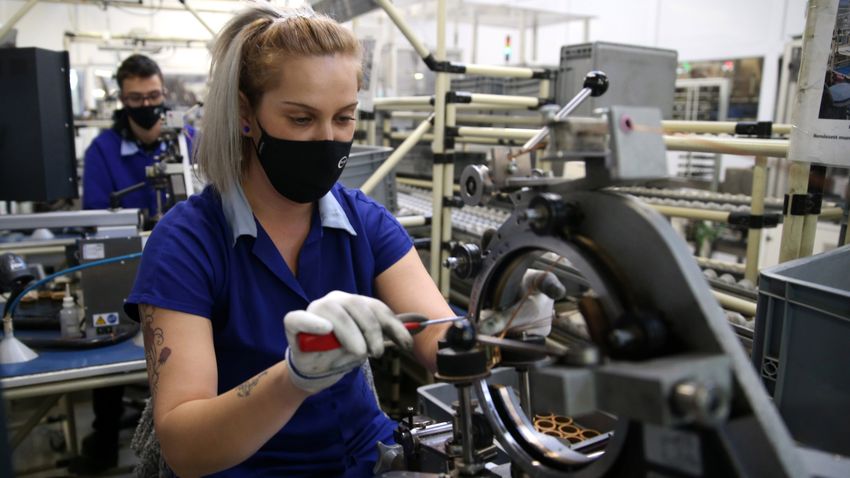Wages have been rising continuously in Hungary for 108 months, said Sándor Bodó, the State Secretary responsible for employment policy at the Ministry of Innovation, on the M1 on Wednesday in response to the latest data from the Central Statistics Office (KSH).
According to KSH's announcement on Wednesday, in December of last year, average gross and net earnings increased by 9.7 percent compared to a year earlier, and in the whole of last year, average gross and net earnings increased by 8.7 percent compared to 2020.
Sándor Bodó also touched on the fact that the economic growth last year was 7.1 percent, and in terms of the individual sectors, the growth was 9.6 percent in industry, 9.1 percent in the manufacturing industry, and 13.3 percent in the construction industry. He added: this means that the highest and most predictable incomes can be counted on in these sectors. According to the Secretary of State
The tax policy in Hungary is employer- and employee-friendly: the social contribution tax is constantly decreasing, so companies have money from which they can pay wages and develop. In addition, he cited the exemption of those under the age of 25 as an example from the employees' point of view.
In December, as expected, the growth rate of earnings barely changed. What is surprising from the data is that, while in the previous months the private sector was characterized by a smaller wage increase than the public sector, by December the two growth rates had leveled off - Gábor Regős pointed out in connection with the statistical report, according to which in December 2021 the gross average earnings of full-time employees will be 492,800 , the average net salary calculated without discounts was HUF 327,700, both 9.7 percent higher than a year earlier.
In 2021, among the individual sectors, the highest earnings were characterized by the financial, information and communication sectors and the energy industry, while the lowest were agriculture, tourism and the social sector.
Gábor Regős pointed out that the growth of average wages was the slowest in other services, the energy industry and public administration, while the fastest in the healthcare and art sectors.
According to his forecast, the increase in average wages in 2022 may be faster than last year, in double digits, which will be helped by a sharp increase in the minimum wage and the guaranteed minimum wage, as well as a reduction in contributions and a labor shortage.
The increase in real wages will be restrained by strong inflation, but it will still be positive, so the income of employees will be worth more on average than last year - he emphasized, adding that the continuation of wage increases is necessary in order to catch up with the economy, especially in those sectors where this was less typical in the past period.
Source and full article: magyarnemzet.hu
Featured image: MN












